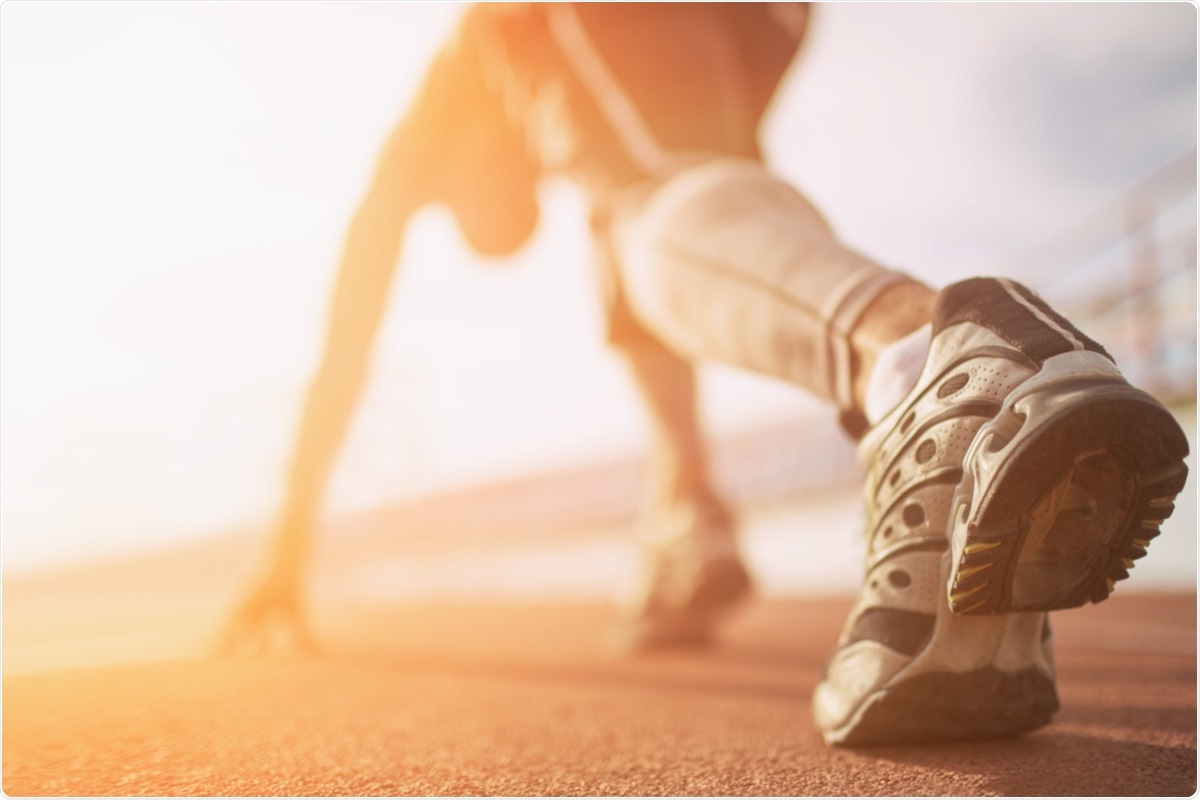Getting the coronavirus disease 2019 (COVID-19) vaccine — especially the second shot — can produce minor side effects such as aches and fever that tend to go away after a day or two.
Adding to the list, a small study from the University of Arizona, USA, found that people may find it slightly challenging to exercise after getting a two-dose coronavirus vaccine. In this study, the research team found vaccinated people with no history of COVID-19 infection show small increases in physiological demands to graded exercise.
The researchers write:
While this indicates that the physiological demands to defined intensity exercise is greater after COVID-19 vaccination, we should emphasize that these changes were small in magnitude and that other key measures of metabolic load and exercise capacity (e.g., blood lactate, plasma adrenaline, plasma cortisol, predicted VO2max and ventilatory threshold) were unaffected by vaccination.”
Vaccination is recommended to protect athletes from getting COVID-19 during training or in overseas games. But the current study findings could help athletes decide if they should take the COVID-19 vaccine and subsequent booster shots before or after a major sporting event. The researchers also found that the COVID-19 vaccination helped boost the metabolic response to exercise in people who previously had SARS-CoV-2 infection. Increasing the metabolic response may help with the diminished exercise capacity observed in people with long COVID.

The study “Recent COVID-19 vaccination is associated with modest increases in the physiological demands to graded exercise” is published on the preprint medRxiv* server.
How they did it
The team recruited 18 healthy participants between the ages of 24-43 to complete a 20-minuted graded cycling exercise before and 21 days after receiving a two-dose Pfizer-BioNTech or a one-dose Johnson & Johnson vaccine. About 12 people received their shots during the study period.
Participants had their oxygen measured, and blood samples were taken to determine serological activity against severe acute respiratory syndrome coronavirus 2 (SARS-CoV-2) – the virus that causes COVID-19.
Vaccinated individuals show increased physiological demand during exercise
The COVID-19 vaccination was associated with increases in several physiological responses during the graded cycling exercise. For example, the researchers observed a rise in metabolic demand corresponding to increased oxygen intake, carbon dioxide production, respiratory exchange ratio, ventilation, heart rate, serum adrenaline, and noradrenaline levels.
However, there was no difference in ventilatory equivalents of oxygen uptake, carbon dioxide production, stroke volume, cardiac output, ventilatory threshold, serum lactate, and serum cortisol before and after vaccination.
People with no history of prior infection showed more elevated heart rates and noradrenaline response at the 80% VO2 max stage after getting their two-dose Pfizer-BioNTech vaccine. Additionally, these participants showed an increase in the volume of carbon dioxide versus the amount of oxygen consumed after vaccination.
Increased metabolic response in vaccinated individuals with prior SARS-CoV-2 infection
The COVID-19 vaccine appeared to increase the metabolic response during exercise in people who previously recovered from SARS-CoV-2. In four participants with natural immunity who received the Pfizer-BioNTech or the Johnson & Johnson vaccine, there were lower adrenaline levels and a ratio of carbon dioxide production/oxygen consumption. Serum lactate levels appeared lower, but this result was not significant.
Despite the small sample size in individuals with natural immunity, the researchers suggest vaccination could help people with long COVID who experience enduring physiological symptoms after infection. Having the vaccine increase elevated metabolic response may support long-haulers’ ability to exercise.
Overall, the results indicate that vaccinated people with no history of SARS-CoV-2 could experience increased physiological demands for at least 2 to 3 weeks after getting their second dose of the mRNA vaccine. However, future studies are needed to evaluate whether these modest increases in physiological demands could influence the performance of professional athletes. Conversely, vaccinated people with natural immunity from prior infection do not find issues with exercising.
*Important notice
medRxiv publishes preliminary scientific reports that are not peer-reviewed and, therefore, should not be regarded as conclusive, guide clinical practice/health-related behavior, or treated as established information.
https://news.google.com/__i/rss/rd/articles/CBMic2h0dHBzOi8vd3d3Lm5ld3MtbWVkaWNhbC5uZXQvbmV3cy8yMDIxMDkwMy9DYW4tQ09WSUQtMTktdmFjY2luZXMtYWZmZWN0LWF0aGxldGljLXBlcmZvcm1hbmNlLWluLXRoZS1zaG9ydC10ZXJtLmFzcHjSAXdodHRwczovL3d3dy5uZXdzLW1lZGljYWwubmV0L2FtcC9uZXdzLzIwMjEwOTAzL0Nhbi1DT1ZJRC0xOS12YWNjaW5lcy1hZmZlY3QtYXRobGV0aWMtcGVyZm9ybWFuY2UtaW4tdGhlLXNob3J0LXRlcm0uYXNweA?oc=5
2021-09-03 13:21:00Z
CAIiEBJdgOAxAY0J0ODzAU8coKsqMwgEKioIACIQZdRflS9INK7zM5FkBi3R3CoUCAoiEGXUX5UvSDSu8zORZAYt0dwwr47MBg
Bagikan Berita Ini














0 Response to "Can COVID-19 vaccines affect athletic performance in the short term? - News-Medical.Net"
Post a Comment